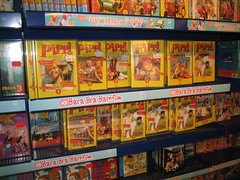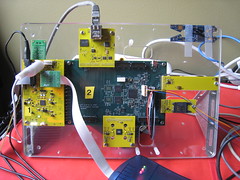by Claes-Fredrik Mannby
 A topic that has started migrating from research communities to widespread adoption is the notion of a Life Library.
A topic that has started migrating from research communities to widespread adoption is the notion of a Life Library.
In 1945, Vannevar Bush proposed a computer system he called the memex (“memory extender”). It involved electronically linking frames of microfilm. Ever since, and probably since long before then, people have had the notion of treating the world around them, in a sense, as an extended memory system.
When you collect souvenirs from the places you visit, and put them on your shelves or in your drawers, you stash away potent memory-evoking devices that you know you will run into, bringing back memories when you encounter them.
When you read books and add them to your library, you extend an index in your mind, and accrue wisdom. The books themselves, whether you keep them at home, or rely on other libraries, become reference material that you can use to elaborate on the memories as needed.
Digital media, as exemplified by movies, audio recordings, hypertext, photos and chat logs, open up a similar world of extended human mind.
Exbiblio sees incredible value in uniting the physical and digital worlds into a single extension for your mind, in this sense. By capturing video and audio recordings of physical parts of your “library,” we can connect them directly to the digital realm, which usually has counterparts to the physical library, and add value in various ways by helping you navigate both realms, continually learning from your individual usage and from aggregate usage.
It’s a very topical and interesting question, then, what aspects of such “Life Libraries” that have been proposed or exist, which have failed and which have been successful, and which will become commonplace, if any.
(more…)
 I feel a bit intimidated by the idea of presenting what we’ve done since we last posted updates on the software and hardware development. I think I’ll let the overview slip a bit, and get started with a few recent tidbits.
I feel a bit intimidated by the idea of presenting what we’ve done since we last posted updates on the software and hardware development. I think I’ll let the overview slip a bit, and get started with a few recent tidbits.



